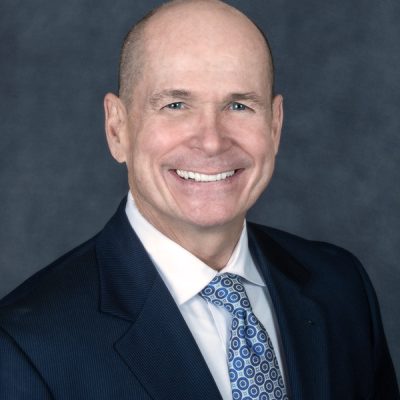The decision to entrust a loved one to the care of a nursing home is already difficult enough without the added worry that they may not receive the level of care that you are expecting. Unfortunately, nursing home abuse is a huge problem in the United States, with many facilities struggling with a lack of qualified staffing.
In fact, the Senate Special Committee on Aging states that elder abuse affects as many as five million people every year. While some signs of abuse are obvious, nursing home abuse isn’t always easy to spot.
Signs of Nursing Home Abuse
Whether it’s physical, emotional, sexual, or financial abuse, any form of abusive behavior can jeopardize the well-being of residents and cause them tremendous suffering, injuries, and losses. For these reasons, victims of elder abuse and their families have the right to take legal action against at-fault caretakers and nursing facilities and pursue the justice and compensation they deserve through civil lawsuits.
However, abuse alone is not the only way elderly victims can suffer harm and losses – neglect also ranks high among the underlying reasons for pursuing these types of cases. Nursing home neglect puts elderly residents at an increased risk of suffering harm and losses, including both physical and emotional injuries. Below, we discuss the most common signs of nursing home abuse and neglect.
PHYSICAL & SEXUAL ABUSE
Pressure marks, bruises, abrasions, burns, and broken bones are some of the signs that abuse may be occurring. You should also be wary of odd or inconsistent explanations for injuries, or excuses for why you cannot visit with your loved one alone. Watch for difficulty standing or walking, depressed or withdrawn behavior, bruises or bleeding in private areas, and evidence of venereal disease. Another red flag may include taking the patient to multiple facilities for treatment.
EMOTIONAL & VERBAL ABUSE
If your loved one begins displaying nervous or fearful behavior, seems withdrawn or apathetic, or is displaying other unusual behaviors, this may be a sign that they are being emotionally abused. If you have observed or have been told by your loved one that a caregiver has been snapping or yelling at them, or if you have noticed that they seem tense or strained in a caregiver’s presence, you should immediately address the matter with the head of the nursing home.
NEGLECT OF ESSENTIAL NEEDS
Neglecting the basic needs of elderly residents can take many forms, including failures to provide residents with adequate food, water, and a safe or clean environment. Neglect of basic needs can result in dehydration, malnutrition, rapid weight loss or weight gain, the development or worsening of medical conditions, and potential hazards that increase victims’ risks for suffering harm, including injuries caused by falls and other accidents that could and should have been prevented.
MEDICAL NEGLECT
Nursing homes have a legal obligation to meet the medical needs of residents. In tailored care plans, nursing homes will often outline the need to provide care for residents who are physically disabled or have limited mobility (such as helping them move or repositioning them in their beds periodically), require treatment of various medical conditions or cognitive disorders, or need certain medications. Nursing facilities also have a duty to adequately identify and address other medical concerns, such as injuries or illnesses that require appropriate treatment. Neglecting medical needs can have major consequences on the health and well-being of residents, from bed sores and infections to a worsening of underlying conditions or illnesses, and even wrongful death.
NEGLECT OF PERSONAL HYGIENE
Attending to the personal hygienic needs of residents is a duty nursing homes must uphold, not only for the general well-being of residents, but also for the prevention of various injuries or illnesses. Neglecting hygiene can include inadequate assistance with bathing, cleaning, laundry, oral hygiene, and other essential hygiene practices, and may result in infections, illnesses, and other physical or even emotional injuries.
EMOTIONAL OR SOCIAL NEGLECT
Nursing homes must meet duties for attending to the basic needs, personal hygiene, and medical concerns of residents, but their neglect of a resident’s emotional or social well-being can also have devastating consequences. For example, elderly individuals who are repeatedly ignored, left in isolation, or mistreated by staff can experience physical and emotional suffering. Common signs of emotional neglect include sudden or unusual changes in behavior, self-harm, malnutrition or weight loss / gain, withdrawn behavior, decreased communication, agitation or anger, issues with other residents, and more.
VICTIMS RIGHTS: PURSUING A CIVIL LAWSUIT
Whether victims voice their concerns or lack the ability or willingness to report neglect, it often becomes the responsibility of family members to step forward and take action. At Todd Miner Law®️, our lawyers represent nursing home neglect victims and their loved ones as they navigate the civil justice system. By pursuing a civil lawsuit, you can take a stand against negligence, seek financial compensation for harm and losses, and play a role in preventing neglect from happening to others.
At Todd Miner Law®️, our legal team helps clients level the playing field with powerful corporations and insurance companies due to our extensive experience, the insurance defense insight of Attorney Todd Miner, and our passion for acting as aggressive, tenacious advocates for those in need.
Discuss your nursing home negligence case, rights, and
how we can help when you contact us for a FREE consultation.








